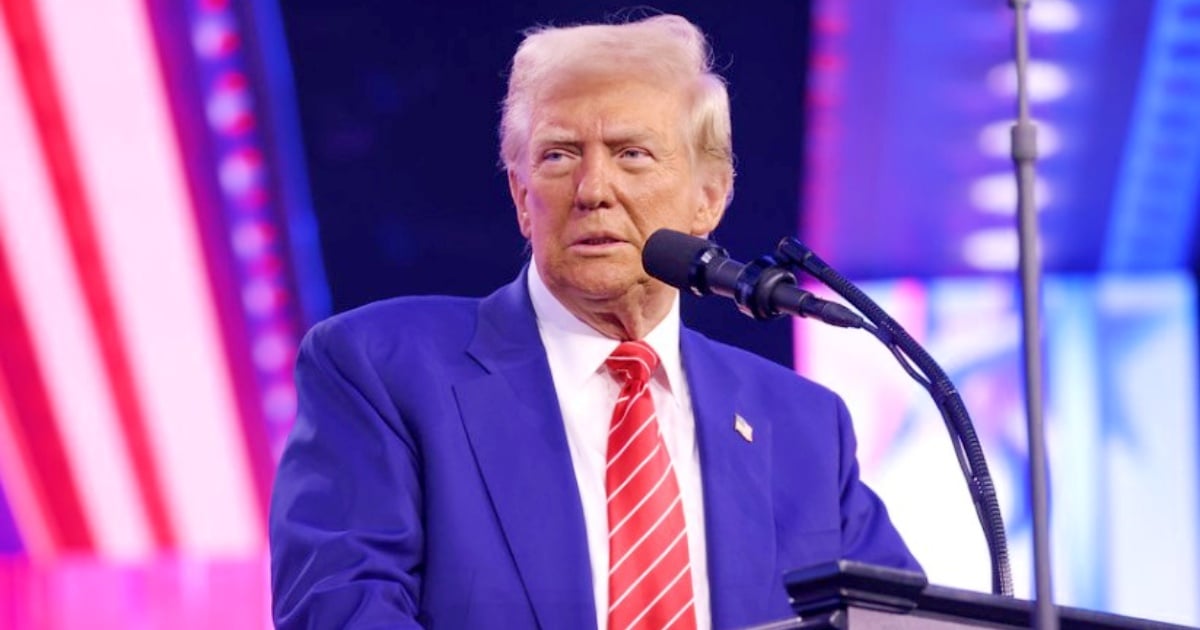President Donald Trump has once again issued warnings about implementing new tariffs on the European Union (EU), extending his trade war after similar actions against Mexico, Canada, and China. Without specifying exact timelines, Trump indicated that tariffs on European goods would be imposed "fairly soon."
Upon arriving in Maryland from Florida, Trump criticized the EU, asserting that the bloc is "really out of line" and that trade between the two powers is uneven. He claimed that the European Union has been "exploiting the U.S. for years."
"They don't take our cars, they don't take our agricultural products. They take almost nothing, and we take everything from them—millions of cars, huge amounts of food and farm products," the president stated. The Republican leader emphasized that although there is no set schedule, the application of these tariffs is imminent.
His statements reinforce a protectionist trade policy he has championed since his first day in the White House, initially targeting China and North American neighbors, and now focusing on the EU and BRICS nations. Regarding trade with the United Kingdom, Trump acknowledged an "overreach" but claimed it could be resolved.
Additionally, he praised British Prime Minister Keir Starmer, highlighting "several meetings and numerous phone calls," underscoring a strong bilateral relationship.
EU's Response to Tariff Threats
European leaders have expressed strong opposition to Trump's plans and have shown unity in the face of the tariff threat. Ahead of an informal meeting in Brussels on international security and trade, German Chancellor Olaf Scholz asserted that the EU could respond with similar measures.
"We must do it and we will, but we must proceed in such a way that things de-escalate to achieve cooperation," he stated. Meanwhile, Polish Prime Minister Donald Tusk warned of the severe consequences of a trade war with the U.S.: "We must do everything possible to avoid this completely unnecessary and foolish tariff war."
In agreement, Danish Prime Minister Mette Frederiksen opposed confrontation among allies but assured that Denmark would cooperate with the EU in its response. "One thing is clear: the EU must act with a single position," reinforced Irish Taoiseach Micheál Martin.
EU Foreign Policy Chief Kaja Kallas emphasized that a trade war with the U.S. would have no winners and that China would be the primary beneficiary. "Tariffs will affect employment and prices, weakening the competitiveness of both economies," she explained.
Economic Impact and Geopolitical Consequences
The impact of these tariffs will not only have economic repercussions but also geopolitical ones. On Sunday, Trump justified his measures by stating that the EU's trade deficit with the U.S. amounts to 300 billion euros, calling it an "atrocity."
He also mentioned possible tariffs on trade with the United Kingdom, though he noted that the issue "could be resolved" through negotiations with Starmer.
As Trump's priorities focus on the U.S.'s national interests, the EU seeks to enhance its economic and military independence. The war in Ukraine has expedited efforts to reduce reliance on Russian gas, and tensions with Washington might also accelerate the bloc's industrial and trade autonomy.
At the informal Brussels summit, EU-U.S. cooperation and military spending will be key topics. According to the European Commission, the EU needs to invest 500 billion euros in defense over the next decade, a stark contrast to the 8 billion euros allocated in the 2021-2027 budget.
Keir Starmer will attend the meeting, marking the first visit by a British leader since Brexit. His goal is to "rebuild" relations with the EU at a time when the bloc seeks to strengthen its global standing in response to challenges posed by Trump and other powers.
As trade tensions rise, Europe braces for a possible tariff war that could profoundly transform transatlantic trade and the global economy.
FAQs on U.S.-EU Trade Tensions
What are the potential impacts of tariffs between the U.S. and EU?
Tariffs could lead to increased prices and affect employment, weakening the competitiveness of both the U.S. and EU economies.
How has the EU responded to Trump's tariff threats?
The EU has expressed strong opposition and may consider similar countermeasures while seeking to de-escalate tensions and maintain cooperation.
